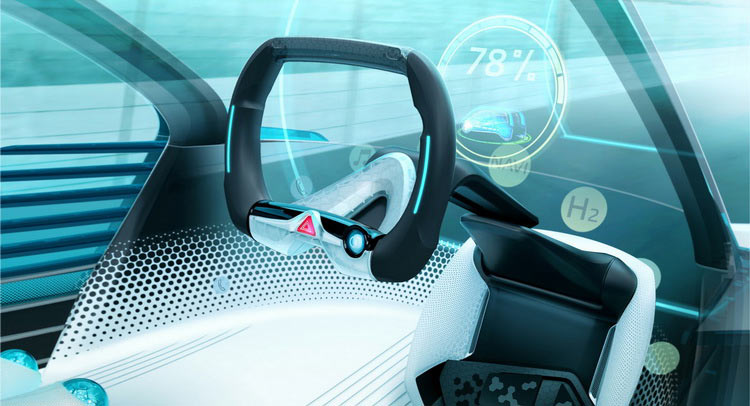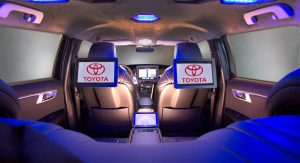If you generally have a problem with the likes of Google or Apple having access to your personal information, you may find yourself weary of how future cars will conduct themselves once you climb behind the wheel.
Take Toyota, for example: after announcing its Connected services back in April, project CEO Zack Hicks finally reveals how a person’s social media accounts can play a part in improving customer experience.
Aside from a system that’s fully connected to your mobile device and is made aware of your destinations and preferences in terms of music and different settings, Toyota basically wants to know as much as possible about the consumer.
The way it would work is illustrated in a recent interview with Toyota Connected CEO Zack Hicks, who gave the following example during an interview: “If we know you really like the Dallas Cowboys, and we know there’s a game that day, and you’re traveling in the general direction of the stadium, we can predict with 80 percent accuracy that you’re going to the Cowboys game. We can say, “Looks like you’re going to AT&T stadium, do you want us to route you around traffic and prepay your parking?”
Hicks was immediately asked how Toyota would know if the consumer likes the Cowboys or not, to which he replied by saying “well, if we have access to your public social media posts, we might know that.”
Asked if Toyota is planning on analyzing their customers’ social media, Hicks explained that “public social media posts tell us a lot. Consider LinkedIn. We may be able to learn things like you’ve changed jobs or are actively looking for jobs. It also tells us where you might be in the purchase cycle for a vehicle. On Facebook, if your page is public, you might be posting that you just had a baby, or you just got married. We have access to that public information. If we know that you’re shopping for a car and you just had a baby, you’re probably not looking for a sports car. With that information, maybe we know you’re an avid cyclist, so if you come in for service, we know to give you a loaner vehicle with a bike rack.”
In other words, it’s mainly just information that customers are offering to share voluntarily, and not something to be deemed intrusive; at least according to Hicks.
“Many of the music-streaming companies and radio stations are doing that today. They’re monitoring how long their customers are on a station or on a certain song. And if the customer changes the channel during the same song, a lot of music streaming services will just stop playing that song for you. So it’s the same type of technology.”
Hicks adds that “people are willing to share their data if they’re going to get something that’s a better value in exchange. But we also have a responsibility to not do something damaging with that data. We can’t just give it to somebody else. And the customers have to know that if we’re going to give it to somebody else, it’s for value. Today when you get a flat tire and you push the SOS button, we’re sending data to either AAA or another service provider. But we don’t want to give it to a marketing firm and have them do something that betrays our customers’ trust.”
When asked where his company is compared to their competitors, the Toyota Connected chief said that they’ve got the advantage as rival companies haven’t organized their data yet.
“We still have a real opportunity to deliver some exciting services nobody has done before.”
How do you guys feel granting your car access to your personal information? Especially since most people do it all the time with certain apps and social media platforms.






